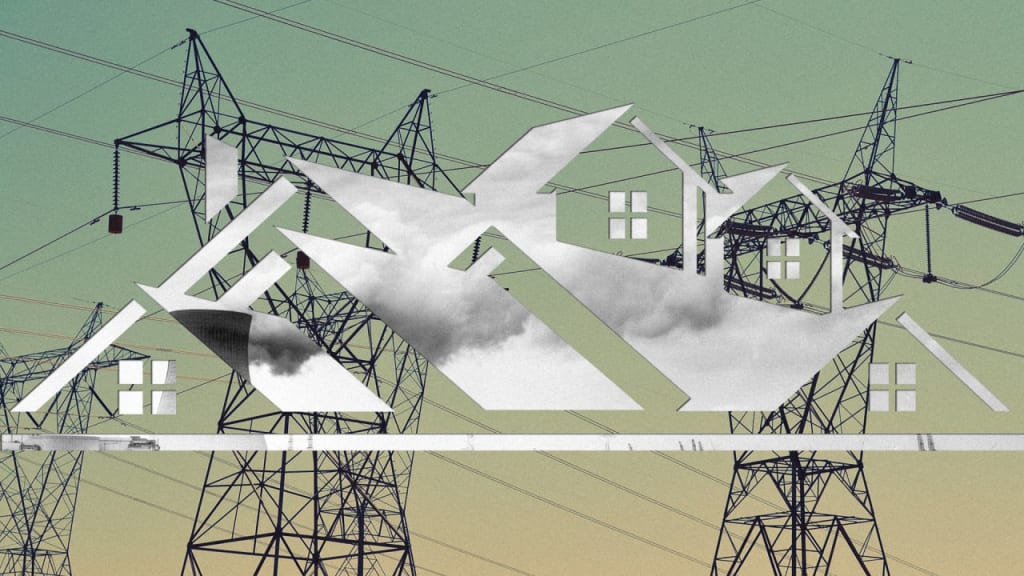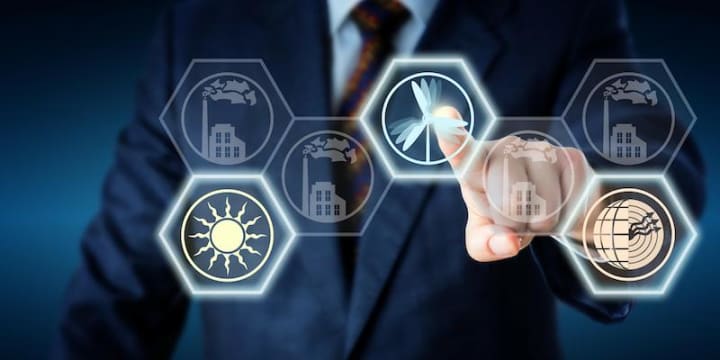How Blockchain Could Give Us a Smarter Energy Grid
Do you think blockchain could give us a smarter energy grid? It's more likely than you'd think.

Right now, blockchain technology has become the foundation of one of the biggest paradigm shifts imaginable. It has become the foundation of the world's first entirely digital currency. Smart contracts, too, have been hailed as one of the most promising routes to skip lawyer fees in recent years.
It seems like there's no limit to how much good blockchain can do. These days, energy experts are beginning to believe that blockchain could give us a smarter energy grid that's geared towards efficiency and environmentally-friendly usage.
Wondering how this could be? Here's what energy experts are saying could be the future of our electricity.
To understand how blockchain could give us a smarter energy grid, let's talk about the grid first.
Right now, energy grids can't tell the difference between power made by coal and electricity generated from solar cells. This makes sense, since electricity is always going to be electricity. There's no real "brand" of power.
To the machinery, it won't matter where the power comes from. However, to people, it will. People don't want to have energy that isn't produced cleanly—and governments have to keep track of clean energy production.
To help track of how much clean energy is produced, governments have created electronic "signatures." These signatures come in the form of renewable energy certificates and have to be maintained in a power
So what's wrong with the certificates?
The vast majority of renewable energy certificates are incredibly slow, and often require a lot of different staff members to keep track of them. In fact, brokers and sellers have to be contacted to buy and sell them. A third intermediary also has to oversee everything to prevent corruption.
Overall, it's a very inefficient process that causes renewable energy to be a needlessly pricey endeavor. It also means that our power grid isn't working as efficiently as it could.
The reason why blockchain could give us a smarter energy grid is because of the signatures issue.
The fun thing about blockchain technology is that it's all about signatures and safeguards. Inventions like smart contracts allow two-sided verifications with a digital third party (the code itself) to oversee the transaction.
Blockchain also works with unique signatures that allow you to trace where the source could come from—if you want to design a blockchain signature like that.
Blockchain could give us a smarter energy grid by replacing all the paperwork with a digital signal.
Using blockchain as a way to deal with certificates would fully automate a massive portion of the grid that has been nigh impossible to make more efficient in its current state.
This would immediately reduce waste in terms of both time and money—all while giving a fully transparent glance at how energy is produced. Incidentally, this kind of "smart certification" would make green energy more desirable and incentivize alternative energy groups to increase production.
Full automation of the energy grid also removes one of the other issues energy officials have struggled with.
Paperwork, time, and protocol aside, the other issue that has long plagued the energy industry is human error. People can and do make mistakes. In the case of corrupt officials, it also could be a very intentional error that regular checks and balances would not pick up.
This, in turn, raises the cost of keeping up energy grids, which adds a lot of problems for users. Of course, hiring all those people to maintain and track certificates also adds plenty of cost to energy as well. Blockchain could give us a smarter energy grid that would end up costing less fairly quickly, if you think about it.
Blockchain technology could offer foolproof transparency that could eliminate errors and lower energy bills.
By eliminating errors, blockchain technology would help energy industry officials lower the price of electricity for consumers. The transparency offered by blockchain would also allow people who want to trace issues to do so in less time.
The obvious downside would be that energy certificate jobs would quickly rise to the top of the jobs robots would take first. However, considering how archaic the process already is, it makes sense that one would expect this to happen anyway.
The biggest benefit of having a smarter energy grid would be for energy producers.

Assuming that blockchain could give us a smarter energy grid that automates the certificate process, the biggest winners of all would be green energy producers—and that's a financial win, too.
With the planet in peril, it makes sense that green energy is the way to go. The reason why is because of how long it takes for green energy producers to get paid under the current system. Right now, it can take up to two months for green groups to see a paycheck for the energy they produce.
Automated certification would change that, and make it possible for green energy producers to get paid immediately. The reason for the payment lag is the certification process, so automating it would change the clean energy world for the better.
Blockchain could give us a smarter energy grid that also comes with other financial perks for the little guys, too.
The signatures ability could also potentially mean that homes with solar panels and other similar "green" buildings would be able to trade energy with other areas—offering a buffer from blackouts.
Using this kind of smart grid, businesses could "trade" energy to maximize their energy efficiency and profits.One New York City-based company, LO3 Energy, has already started this kind of neighborhood energy market.
The technology is getting there, but implementing it could be rough.
The fact is that it would take a lot of cash to transition from regular certificates to blockchain certification. Having specialized blockchain transactions may also require a new form of cybersecurity, since "smart" energy could become hackable fairly easily.
Either way, there is potential there, and it could revolutionize the way we make energy. Right now, blockchain is disrupting business as usual—and that means we can expect more to happen soon enough.
Right now, though, it would take government investment to make this happen.
It would take a lot to see smarter energy grids, but the truth is that it's very possible that large portions of the world will be using them sooner rather than later. So, perhaps it's not about whether or not blockchain could give us a smarter energy grid—but rather, when.
About the Creator
Rowan Marley
Rowan Marley is a 20-year-old sports enthusiast who hails from Brooklyn. When he's not hitting up a local Zumba class, he's drinking organic smoothies. That's just how he rolls.






Comments
There are no comments for this story
Be the first to respond and start the conversation.